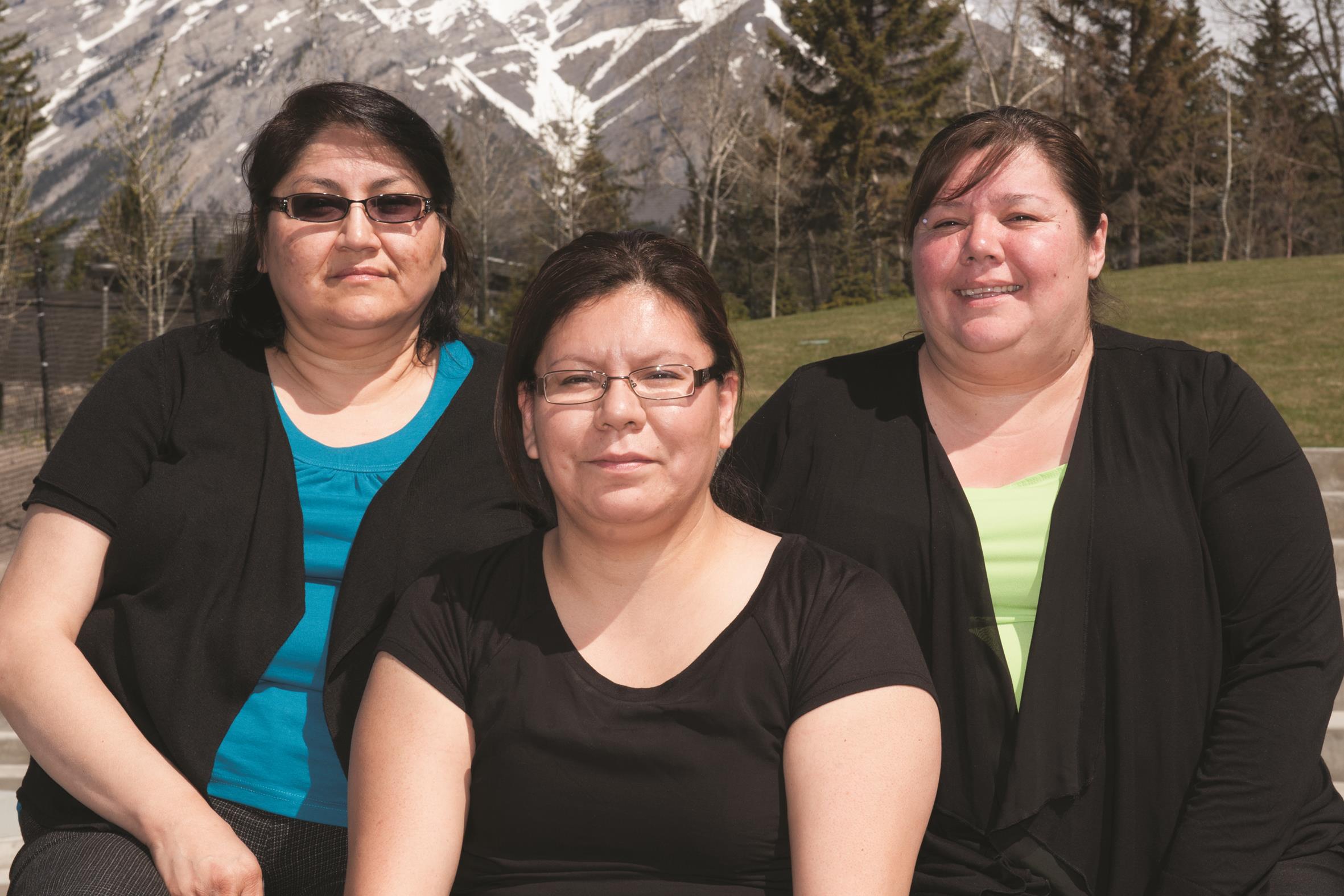Frog Lake First Nations Working Together to “Change the Conversation”

Elaine Carter, Verna Waskahat, and Donna Lewis. Colleagues in Frog Lake First Nations’ economic development office.
Elaine Carter is one of a dozen members of Frog Lake First Nations’ administrative team who have set out together on a new, collaborative path, learning a new way of addressing the future of their community located two and a half hours northeast of Edmonton.
Carter began working as Economic Development Director at Frog Lake First Nations in 2010, and was tasked with developing a long-range economic development plan for the two closely linked First Nations. A year later, it became clear that staff training would help support her team in their work. With a training strategy focused on getting the group to work strategically as a team, the decision was made to complete the Certificate of Indigenous Leadership, Governance, and Management Excellence at The Banff Centre together as a group.
Carter and two of her team were the first to attain their Certificates in May. Several more members of FLFNs’ administration team, including two who are leading youth programs, will begin their certificate path in the autumn.
“Our ultimate goal is to have everyone have the same vision, the same strategic direction,” said Carter. “The main focus is for us to work together to redevelop and revise our strategic plan. We’re looking at five-year planning, 10-year, 25, and perhaps long-term 50 to 100 years.”
As a Nation rich in resources, with its own oil and gas drilling facilities and a number of successful ventures already underway, Frog Lake First Nations’ concern has been to ensure planning looks beyond today, into a future when oil and gas opportunities have come and gone.
“If we are going to advance, we need infrastructure, we need revenue creation to come back onto the reserves seven times,” Carter said. “I don’t know if we will see that in my generation, but maybe in my grandchildren’s.”
Carter wants to see First Nations communities get away from working at the crisis level, and instead develop plans to move beyond income assistance and poverty to economic prosperity and self-sufficiency.
“The ideology, from First Nations’ perspective, is that we take one day at a time. That’s good for the cultural perspective, but in this merging of western and Native ideology, we do need to plan,” Carter said.
Completing six Indigenous Leadership and Management programs in just seven months has been a whirlwind of juggling responsibilities for the Economic Development staff, but an experience that has opened them up to new thinking and fresh perspectives.
While her group of three has learned from program content, and from working as a team, Carter says the most profound learning has come from a statement made by a faculty member in the Inherent Right to Indigenous Governance program. “Leroy Little Bear said ‘change the conversation,’ something that I am just living right now! It’s about how we are administering, that we don’t need to just administer, but we can govern, we can plan, and strategize.”
The Frog Lake First Nations’ community has had successes with ventures coordinated through the Frog Lake Energy Resource Corporation, and through offering entrepreneurial workshops and support to a wide range of ventures that benefit individuals who have ideas and passion.
Yet Frog Lake First Nations’ committed administrators believe that planning for the future – far into the future – is the only way to maintain a balance of community, with its spiritual and cultural ways, and the opportunities presented by today’s hot energy industry.
“Land management is the hottest issue right now,” said Carter. “The reason we keep going back to strategic planning is to think about how we want our reserve to look in 25 years, when our grandchildren are working in our places. A lot of people haven’t seen that vision, and we may not have oil revenues by then. We need to definitely take care of ourselves now.”